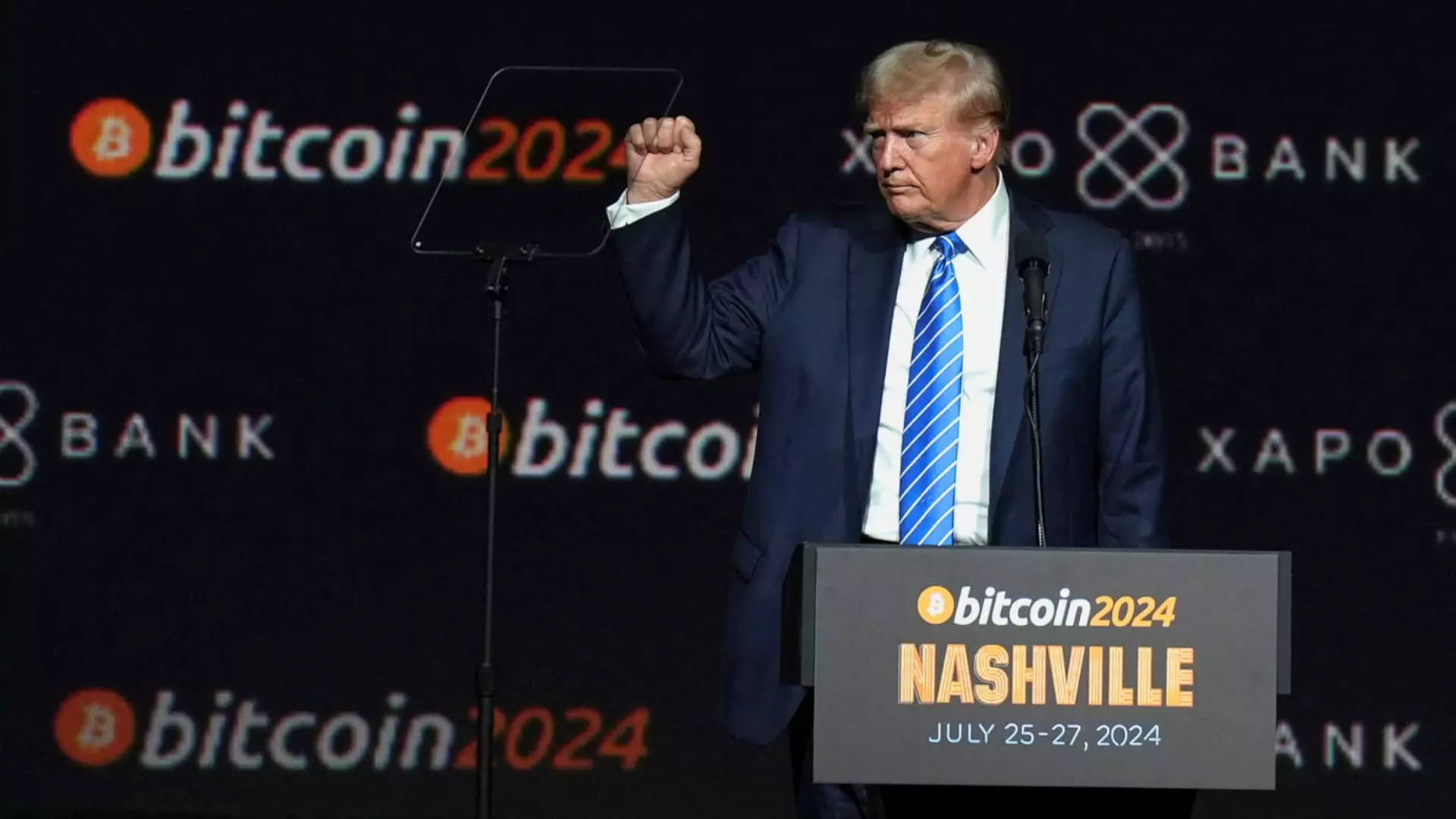In a landscape where financial institutions frequently discriminate against conservative and right-leaning entities, Trump Media’s announcement of a $2.5 billion investment in bitcoin marks an audacious pivot towards redefining its identity. This commitment, which entails issuing $1.5 billion in common stock and $1 billion in convertible notes, is more than just a routine treasury allocation. It’s a bold strategy rooted in the company’s desire to counter perceived financial injustices while positioning itself prominently within the cryptocurrency sector.
For anyone familiar with the modern-day narrative surrounding cryptocurrencies, this move signifies more than just an investment; it’s a calculated declaration of independence. By holding bitcoin as a core treasury asset, Trump Media is not merely jumping on a crypto bandwagon. It’s laying down a gauntlet against traditional financial institutions that, in the eyes of many, have marginalized conservative voices and businesses. The stakes are high, but so too are the potential rewards.
A Risky Game of Volatility
Buried beneath Trump Media’s ambitious plans is an undeniable concern: volatility. Despite the exuberant rallies of bitcoin and its peers, the stock market remains turbulent. After the announcement, shares dropped by 10%, continuing the trend this year of an overall 30% decline. How sustainable is this gamble? With Trump Media’s market cap at approximately $5.3 billion and revenues a mere $3.6 million, the question arises: is their bitcoin strategy a solid foundation or a reckless gamble in the volatile age of cryptocurrency?
This volatility is intrinsic to bitcoin itself, which has experienced dizzying highs and painful lows over the course of its existence. For Trump Media, the balancing act will be crucial. The company’s reliance on performance in a decentralized currency space could expose it to an instability that could dissuade potential institutional investors. If their bitcoin holdings do not deliver the anticipated financial returns, the repercussions could be grave, from sinking stock prices to a battered reputation.
Institutional Backing or Just a Marketing Stunt?
The announcement mentions the involvement of around 50 institutional investors, which lends a veneer of legitimacy to this grand initiative. However, one must question whether this is a genuine demonstration of faith in Trump Media’s vision or merely an opportunistic engagement with a trending asset to forestall imminent financial woes.
The podcast and media industry are cluttered with names who have jumped on the cryptocurrency bandwagon purely for publicity. In contrast, Trump Media boasts a dual agenda: to legitimize itself as a financial player while ostensibly defending the rights of its ideological base against alleged discrimination. The fine line between a sound business decision and superficial marketing should not be underestimated, especially for a company still establishing its legitimacy in a crowded marketplace.
The Crypto Conference Connection
The timing of this massive investment synchronization with major events like Bitcoin 2025 on the Las Vegas Strip underscores a clear motivation: to galvanize supporters and influence public sentiment. As influencers such as Donald Trump Jr., JD Vance, and various crypto moguls gather, the political undertones become evident. Embrace of the cryptocurrency narrative as a mechanism of financial liberation plays into the larger ethos of the Trump political brand, which has long positioned itself as the champion of the outsider.
By leveraging such platforms, Trump Media appears to be capitalizing on a cultural moment. While many traditional companies may deem involvement with cryptocurrencies as high-risk, for Trump Media, it positions them as mainstream players in a financial revolution. The danger, however, lies in being perceived as opportunistic rather than trailblazers.
The Undercurrents of Financial Freedom
Devin Nunes, the company’s CEO, has labeled bitcoin an “apex instrument of financial freedom,” echoing a growing sentiment among conservative business leaders who see cryptocurrencies as a fortress against what they characterize as banking discrimination. This framing is vital, for it transforms the narrative from mere investment to a rallying cry for an entire sector.
With the promise of further product offerings like Exchange-Traded Funds (ETFs) and digital asset products coursing through the pipeline, one must examine whether these ventures significantly contribute to building an economic shelter for the disenfranchised or merely serve as a tool for further speculation. The backlash against traditional financial institutions is palpable, yet the endeavor to seek refuge in cryptocurrencies raises pressing questions about prudence versus ideology.
Trump Media’s bold leap into converting its treasury into a crypto-centric framework represents a complex interweaving of financial ambition and political strategy. Navigating this burgeoning landscape, the firm must tread carefully, balancing the ideal of financial liberty with the realities of market volatility.

